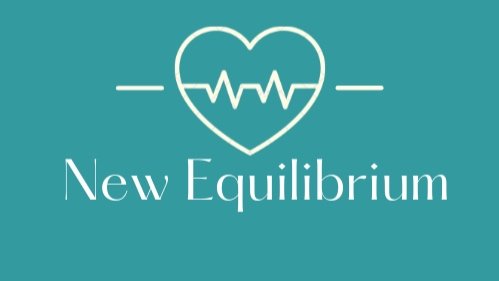
My favourites
-
One of my all time favourites
Emotional Intelligence: Why it can matter more than I.Q by Daniel Goleman is still relevant 25 years after the 1st publication. It is a great introduction to (or reminder of) the importance of emotional processing.
Breaking the Patterns of Depression by Michael Yapko. I have had 3 copies of this book (even an autographed one). They disappear from my bookshelf. This book inspires change.
Attached: The New Science of Adult Attachment and How it Can Help You Find-And Keep-Love by Amir Levine, M.D. and Rachel S. F. Heller, M.A. is on my list. I like the clear descriptions of attachment styles. A bonus is the website which includes a brief questionnaire on attachment style.
-
I love a good self-help book! Practical guides can offer concrete solutions to problems discussed in sessions.
The Relaxation & Stress Reduction Workbook by Martha Davis has been through many edits and upgrades. The practical solutions on offer are well supported by research too. You can cherry pick the exercises that work for you. N.B. I do not recommend any exercise that requires self-punishment (e.g., snapping an elastic band on your wrist to stop a thought). But perhaps newer editions do not include this form of intervention?
The Upward Spiral: Using Neuroscience to Reverse the Course of Depression, One Small Change at a Time by Alex Korb. I have just ordered this one! I’m feeling optimistic.
A Teen’s Guide to Overcoming Sexual Abuse: It happened to me by Wm. Lee Carter. This book gets it. Again, as with all guides, cherry pick the exercises. I strongly recommend working through any sexual assault with a therapist.
Grounding exercises. For those moments when you feel a disconnect between your mind and body. This page is linked to a program developed specifically for male survivors of sexual abuse and assault, but the exercises are suitable for all.
-
Exercise & Depression:
A recent review article supporting exercise as part of the treatment of depression in children. The importance of exercise in the management of depression & anxiety has been understood for years. It’s good to have this validation that it can be effective for kids too.
-
The stress response. This video gives a brief description of the fight or flight response. There is so much more to understand, but this is a clear starting point.
An overview of attachment styles. I love this short explainer, the only thing I would like to add is we can modify our attachment styles. Nothing is set in stone.
Talking about mental health. This youtube site has a range of resources and some really great strategies. I particularly like the “talking about…” where people that have been diagnosed with serious psychological disorder talk together about the experience.
-
In part to help keep my connection with Australia and in part because I love the topics they touch on I listen to:
Radiotherapy, a light hearted ‘round-up’ of health in Australia (with bonus film reviews from a psychological perspective!).
Hidden Brain , is a gentle mix between science and story telling. I shared this linked episode on the pitfalls of the search for happiness with quite a few people.
All in the mind, takes a deep look at a range of health and well being topics.
-
Brain Science Podcast is neuroscience for the lay person. Each month she interviews an author, exploring in depth the neuroscience at the core of the books.
Brain Inspired, is neuroscience (& AI) for the expert. Again interviewing authors (quite often the same authors as Brain Science), but looking at the details more rigorously (and non-combatively). An open discussion between experts. Sometimes (quite often) I have to look up the theories being discussed!
-
I listen to podcasts according to my mood and sometimes because I’m looking for new perspectives.
Where Should We Begin is concentrated therapy. You get to sit in as people explore issues that arise in all sorts of relationships.
28ish Days Later on BBC podcasts. I’m half way through & thoroughly into this new perspective on periods.
Invisibilia from NPR is short and to the point in a very human way. This episode on attachment style did introduce me to a book that I am now recommending.
-
Sometimes I want to learn how similar topics are addressed in French. I don’t always capture the nuance, but I enjoy the different perspective. I wonder if listening in another language changes the way I think about the subjects under discussion?
La Méthode Scientifique is science for the lay person. This episode is my friend and mentor discussing inner speech. I think she mentions our research!
Émotions is exactly what the title suggests. I listened to this podcast as I was trying to improve my French to pass the DELF (French language test). I found new and different perspectives on topics I enjoy. Plus I learnt the words for complex emotions that I didn’t pick-up just through living life.
